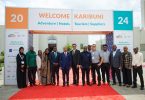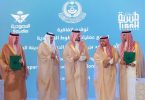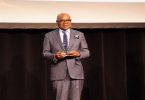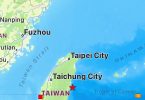Still relatively unknown both in Korea and abroad, PyeongChang, the host of the 2018 Winter Olympics, is hoping to be much more than just a ski resort.
As home to some of the most scenic nature and comprehensive leisure facilities in the nation, PyeongChang is hoping duplicate the success of Lake Placid of the United States during and after the 1980 Winter Games, in attracting tourists and international events.
Korea has grown into a winter sports powerhouse in Asia, finishing in the top 10 in the medal standings in the five previous Winter Games.
To achieve this, Korea has cultivated an environment to nurture winter sports and nowhere is it more obvious than in PyeongChang.
During the past decade, the remote alpine town traditionally known as the best place to ski here has also grown into a favorite destination for mountain hiking, especially the southern part of Mt. Seorak.
It is renowned for fishing, cycling, swimming and golf and is also home to several Buddhist temples, including Woljeong Temple.
Asia’s tourism center
PyeongChang, in Gangwon Province, first attempted to put its name on the global map with a bid for the Winter Games 10 years ago.
Previously, many Koreans were not very familiar with the town and much of Gangwon Province, which is an economic underdog among the nation’s eight provinces.
However, PyeongChang is aspiring to raise its stature and at the same time increase the level of respect for the province as well.
The Winter Olympics, combined with the increasing force of “hallyu” or Korean Wave in popular culture worldwide, is expected to serve as a compelling force in turning PyeongChang and the surrounding area into a world-class tourism center.
Fueled by TV dramas like “Winter Sonata,” which was filmed throughout the province, as well as pop music, Korean popular culture is drawing an increasing number of foreign visitors.
The main cities in the province are Chuncheon, Gangneung, Sokcho, Wonju, and Donghae. The province is also home to Mt. Seorak and Mt. Odae, which attract a large number of domestic tourists. The nation’s largest limestone cave, Hwanseongul, receives over 1 million visitors a year.
Choi Moon-soon, governor of Gangwon, said the province will join forces with the central government to improve tourism and cultural infrastructure before the games.
But major facilities are already in place and will undergo additional expansion.
The Alpensia ski resort will add a concert hall for the 2018 Cultural Olympiad, which is expected to serve as a venue for concerts by hallyu stars.
The Alpensia resort is already famous for the annual Great Mountains International Music Festival and School, showcasing more than 50 concerts and music programs by the world’s top musicians.
The construction of a ski jump tower was completed last month.
Lasting success as Olympic host
Many tourism experts think could PyeongChang could prove to be a lasting success. One Asian example to follow is Sapporo, Japan, the host of the 1972 Winter Games.
The Hokkaido city was not well known before the Games, but with the influx of tourists, it gained fame and currently holds the annual Sapporo Snow Festival that attracts millions of people from all over the world.
PyeongChang will build more MICE (Meeting, Incentive, Convention and Exhibition) facilities and in particular, construct casinos for foreigners, duty free shops and shopping centers.






















